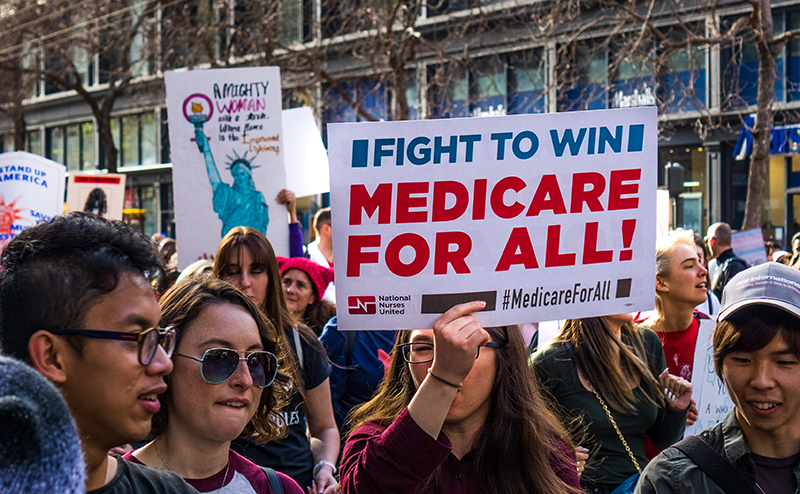In some ways it’s shocking that California, the bluest, hardest left state in the union, still doesn’t have universal health care. Gavin Newson promised a single-payer system when running for governor in 2018, but all attempts have fallen short. Maybe it was something someone said, such as pointing out that one arrangement would cost $400 billion a year, more than double the state budget, funded by a steep 15% payroll tax.
This time, lawmakers launched a two-pronged attack. From the left flank is a constitutional amendment (ACA 11) proposed by lawmakers that would pay for universal health care. If passed by the required two-thirds of both chambers of the Legislature, then approved by voters in a statewide ballot, it would levy:
- A 2.3% excise tax on businesses, minus the first $2 million in receipts.
- A payroll tax of 1.25% “of the aggregate amount of wages or other compensation paid by the employer” on businesses that have 50 or more employees.
- A 1% payroll tax “of the aggregate amount of wages or other compensation paid by the employer to the resident employees in excess” of $49,900 per resident employee.
- And personal income tax hikes starting at 0.5% for those earning $149,509 a year, rising to 2.5% on $2.48 million in annual income.
Also from the left flank is a bill that would set up the system’s rules. Assembly Bill 1400, also known as Guaranteed Health Care for All, would establish CalCare, which would “provide comprehensive universal single-payer health care coverage and a health care cost control system for the benefit of all residents of the state.”
The bill has to pass the Assembly by Jan. 31 if it is to move on to the Senate due to the legislative house-of-origin rule. ACA 11 would have to clear both houses by the end of session on Aug. 31 but would take effect only if AB1400 or some other single-payer scheme becomes law. According to estimates from the California Taxpayers Association, ACA 11 will increase taxes by nearly $163 billion a year. It would also be the biggest tax hike in the history of a state in which lawmakers seem to think their primary duty is to raise taxes.
Almost as important is the secondary duty of a California policymaker: grandstanding. San Jose Democratic Assemblyman Ash Kalra, a co-author of both ACA 11 and AB1400, boasted that through the proposals, his party “can show the rest of the country how to take care of one another.” It’s a statement that will play well in the state’s and nation’s blue regions, but will cause others to ask why are higher taxes and further government meddling required for Americans “to take care of one another.” It’s a fair question.
Opponents are predicting jobs losses, a higher cost of living, and the end of medical care choices if a universal system is put in place. If so, it would be legitimate to wonder, with more than nine in 10 Californians already covered, if the overhaul of a critical system is worth the added costs and the unintended consequences.
Meanwhile, supporters claim that a single-payer system is “the fiscally sound thing to do, the smarter health care policy to follow, and a moral imperative if we care about human life.”
No matter where opinions come down on universal health care, we all should be able to agree that caring for human life is not dependent on public policy but is a trait inherent in most of us. Framing the plan as an ethics corrective is unprincipled in its own way. Let the facts, wherever they fall, not the emotions, speak.
Kerry Jackson is a fellow with the Center for California Reform at the Pacific Research Institute.

